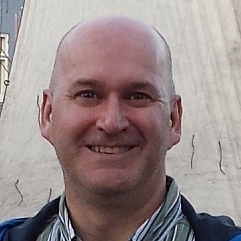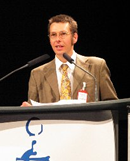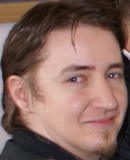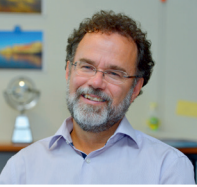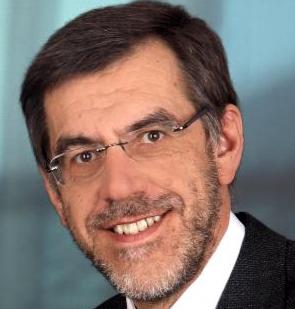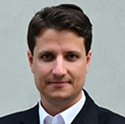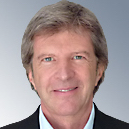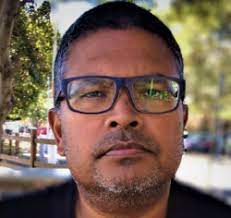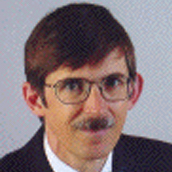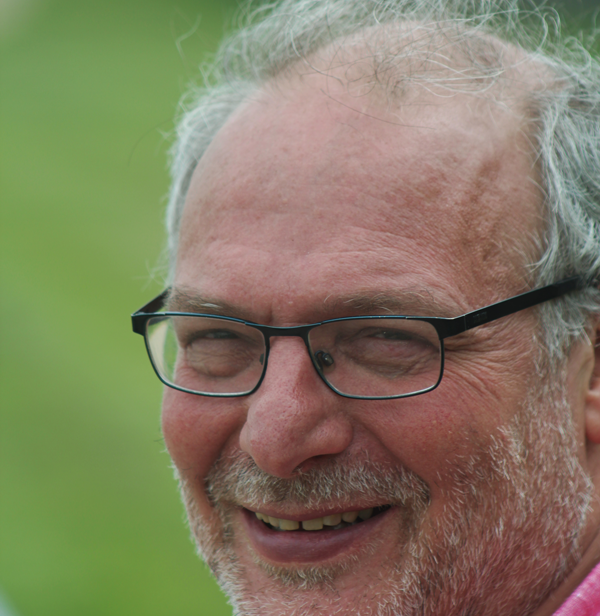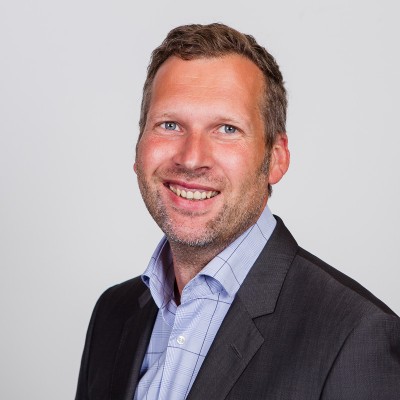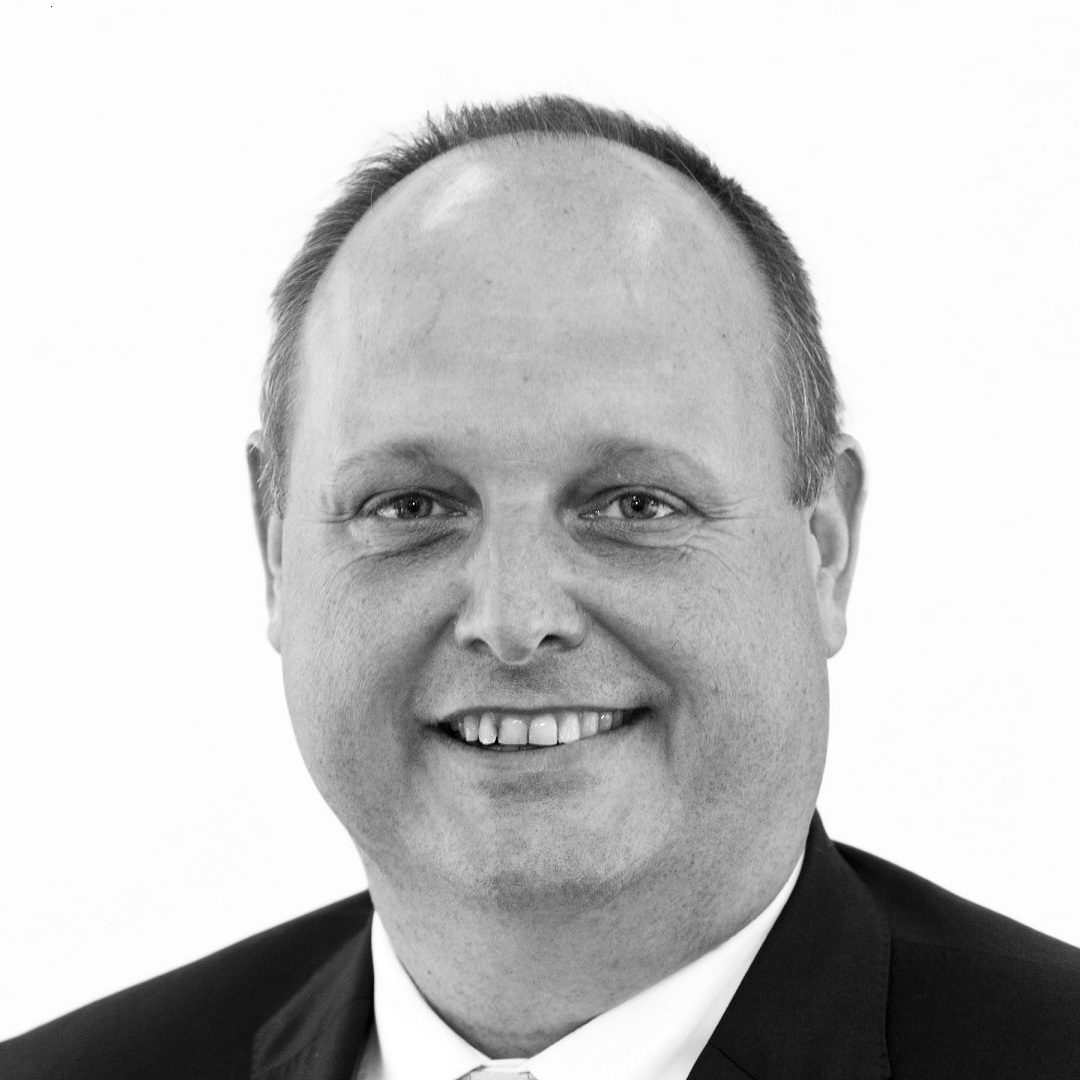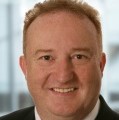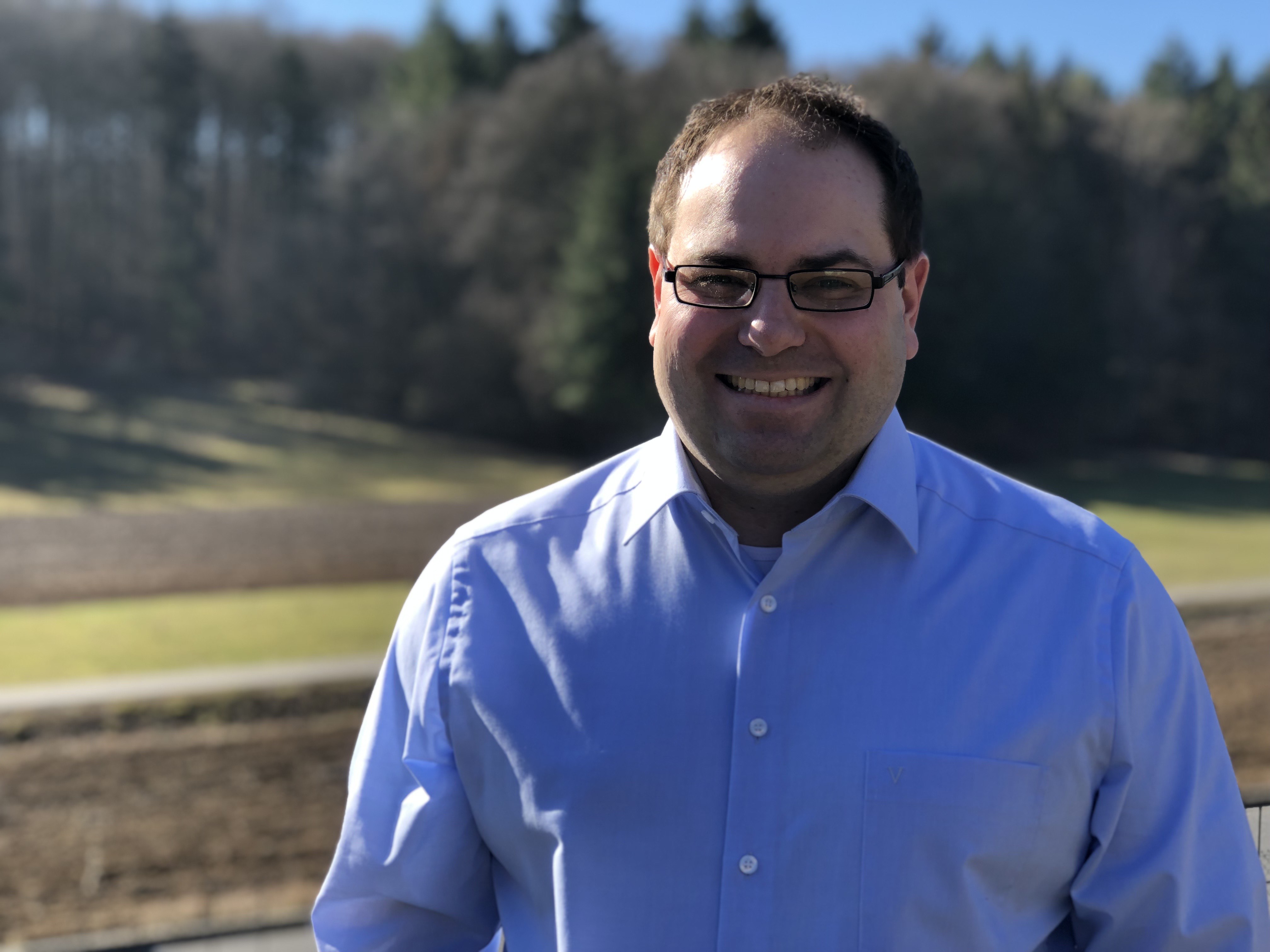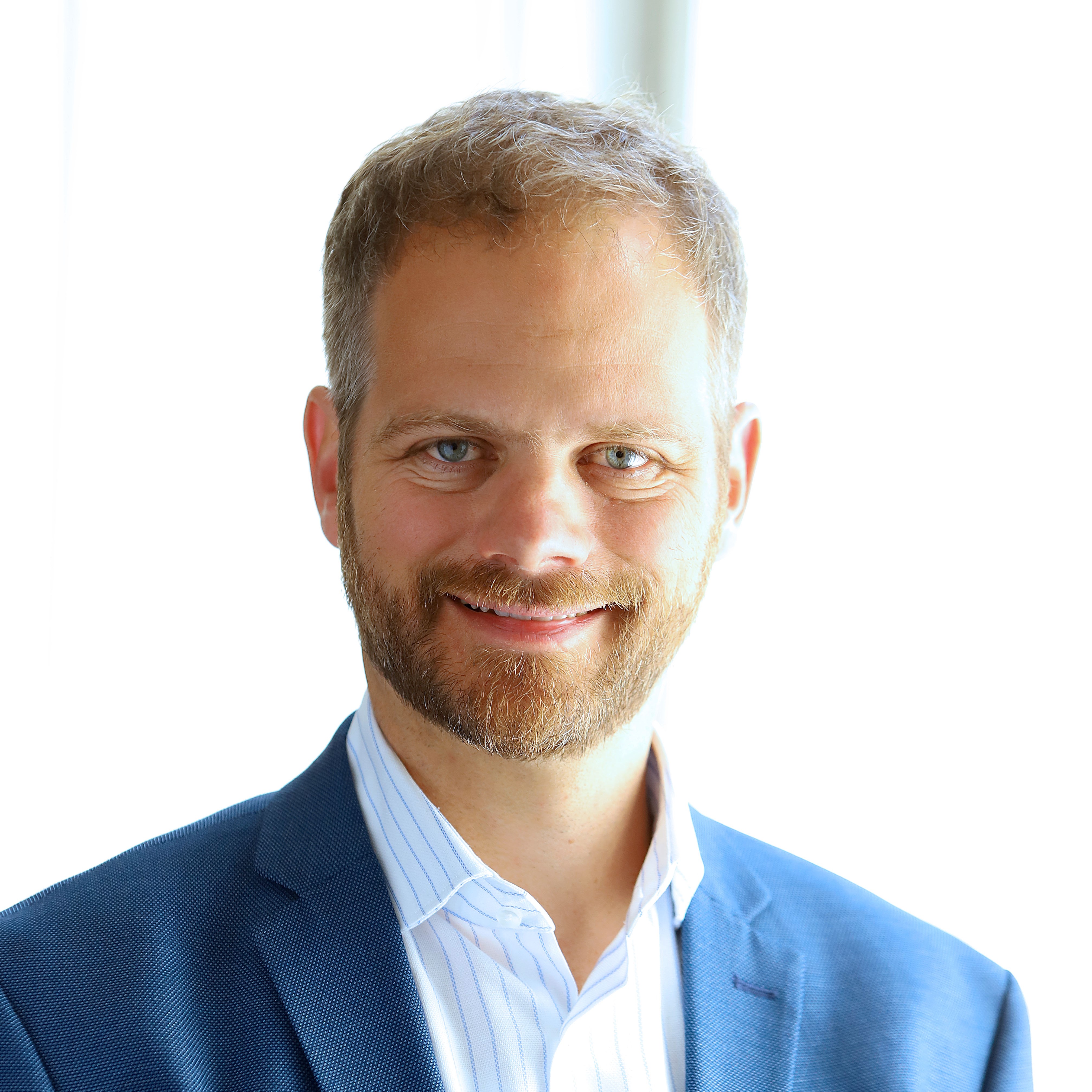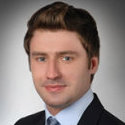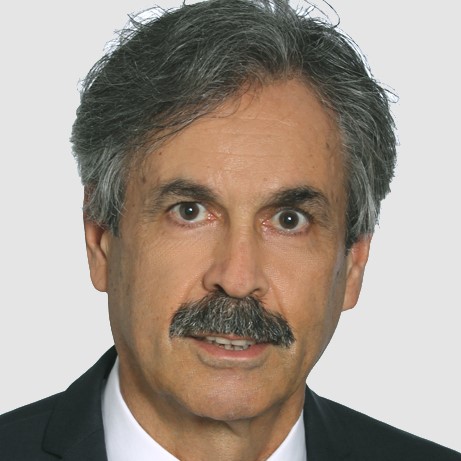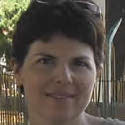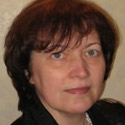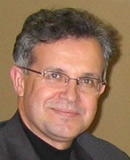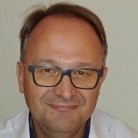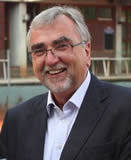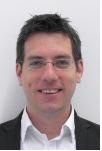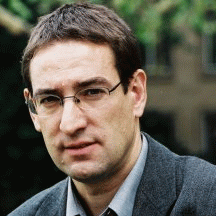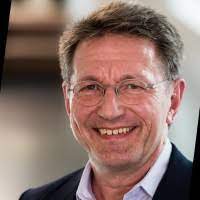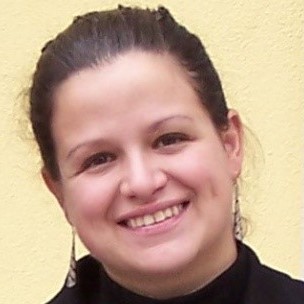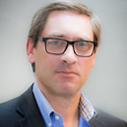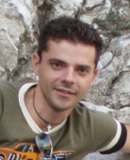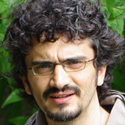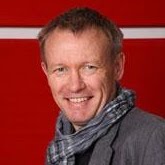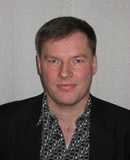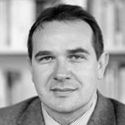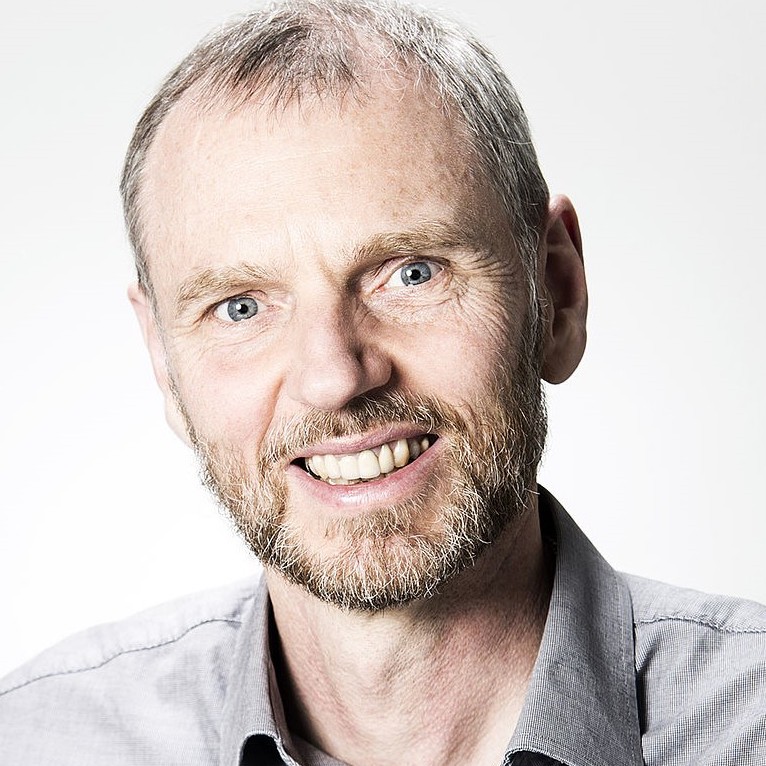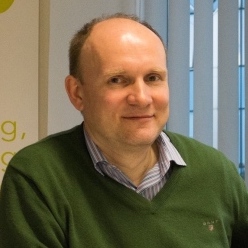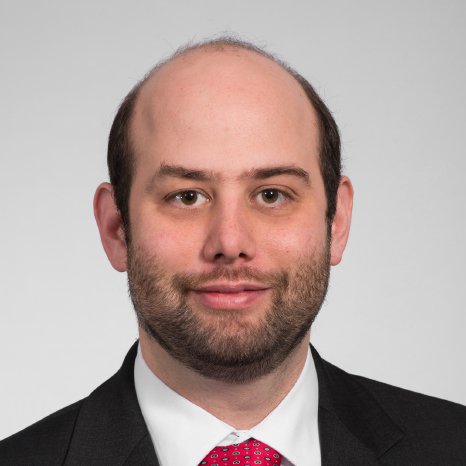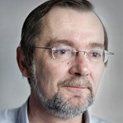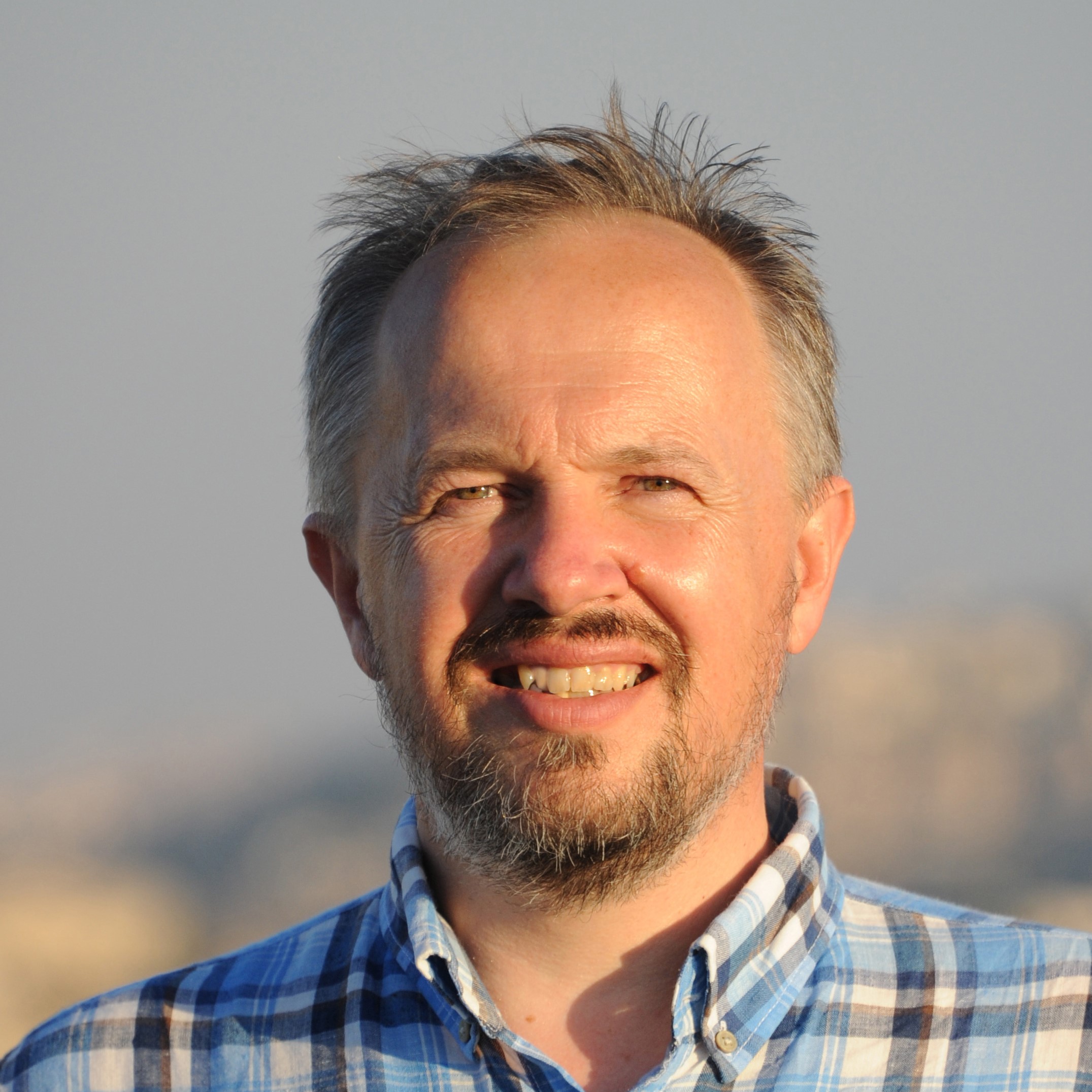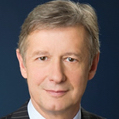Abstracts
Have a look at the lecture abstracts of this year's edition and explore the profiles of the presenters!
All times are UTC+2 (Vienna, CEST - Central European Summertime).
Process mining is used to discover enterprise-level process models from system logs. Process mining practices are mainly activity-oriented and they seldom consider the (often conflicting) goals of stakeholders. Involving goal-related factors, as often done in early requirements engineering phases, can improve the rationality and interpretability of mined models and lead to better opportunities to satisfy stakeholders, especially during digital transformation. In this course, I will first highlight recent challenges related to process mining and the importance of considering goals. I will then introduce a new Goal-oriented Process Enhancement and Discovery (GoPED) method, which aligns discovered models with stakeholders’ goals. GoPED first adds goal-related attributes to traditional event characteristics (case identifier, activities, and timestamps), selects a subset of cases with respect to a goal-related criterion, and finally discovers a process model from that subset. The method defines three types of criteria, supported by different algorithms, that suggest desired satisfaction levels from a (i) case perspective, (ii) goal perspective, and (iii) enterprise perspective. The resulting process models are simpler to understand and reproduce the desired level of satisfaction. Example from healthcare organizations will be used to illustrate the benefits of GoPED.
Lecture at NEMO2022
Date/Time: Tuesday, July 12, 2022 at 09:00 UTC+2/CEST
The current industrial transition towards Factories of the Future (FoF) implies strong transformation of enterprise Business Models within the manufacturing sector. Product Service Systems are a key component of this transition, and contribute to renovate both the underlying enterprise models and the needs of enterprise engineering tools. The objective of the lecture is to articulate the overall needs of transition towards FoF with the requirements for innovative conceptual modelling approaches and new enterprise engineering methods and tools. The lecture will first give a synthetic insight on PSS within the context of FoF, to make possible for the audience to understand the key concepts of PSS and key industrial needs for developing innovative enterprise modelling and engineering solutions. The second part of the lecture articulate two dimensions of Enterprise engineering: an advanced modelling method dedicated to support PSS design and engineering (based on a PSS-oriented meta-model) and a decision-making approach for PSS economic-model balancing.
Lecture at NEMO2022
Date/Time: Friday, July 15, 2022 at 09:00 UTC+2/CEST
The interplay between Knowledge Graphs and Domain-specific Modelling Languages was traditionally concerned with the challenge of “ontological commitment” - i.e., checking the ontological qualities of a language in order to enforce coherence and consistency in model contents. An alternative approach to coupling the two knowledge representation approaches will be promoted by this lecture, motivated by pragmatic requirements of externalizing and combining both human-readable and machine-readable representations, thus giving a novel interpretation to the seminal SECI knowledge conversion cycle. Agile modelling languages are treated here as schemas for knowledge that is amenable to linking, reasoning and publishing with the help of semantic technology - i.e., RDF graph databases, OWL axioms, SPARQL queries and endpoints. The presentation highlights benefits of combining the Agile Modelling Method Engineering Framework with the Resource Description Framework in order to build novel knowledge acquisition methods. The lecture will present results derived from applying and refining this idea in the ComVantage FP7 EU project and the EnterKnow PED Romanian research project, taking it to the point where it may inspire a novel “model-aware” software engineering method.
Lecture at NEMO2022
Date/Time: Thursday, July 14, 2022 at 15:00 UTC+2/CEST
The Safeguards Department of the International Atomic Energy Agency (IAEA) ensures the peaceful use of nuclear material and activities in accordance with legal agreements between the IAEA and member states. In order to verify compliance with the agreements, Safeguards staff verify the consistency between member states declarations with observations in the field (often at nuclear facilities) along with observations from other Safeguards relevant information collected in headquarters. The Department has developed and continues to develop a suite of custom designed software to enable the department’s work. The digitalization of work processes is key to increase the efficiency and effectiveness of the workforce. Some important considerations in this regard are: It is vital to know your users, the business of your users, and your user’ capabilities. Knowledge gaps in any of these areas increases risks, and increases the likelihood of project failure; well designed digital workflows can bring a range of benefits which may not be immediately evident. While digitizing a workflow can help stakeholders understand what needs to be done now, over time the output could be used to identify patterns of past behavior, and can form the basis of future predictions; training and assessments can be used to increase users’ knowledge and engagement with new systems. When deploying a new system, engaging with users and providing training is critical. Post-training assessments can be used to help users identify and retain key points from the training.
Lecture at NEMO2022
Date/Time: Monday, July 11, 2022 at 09:00 UTC+2/CEST
SAPnet is an ADOxx-based modelling tool which includes the ontology toolkit for stochastic Petri net (SPN) modeling enriched with the tools that enable the security evaluation of the model. SAPnet provides (a) a modeler-friendly interface for the composition and the updating of the security vulnerabilities list that affect the model, and (b) fast and accurate results regarding the security metric of the model, at any point of the designing phase.
Lecture at NEMO2022
Date/Time: Wednesday, July 13, 2022 at 14:00 UTC+2/CEST
Processes are ubiquitous for modeling dynamic phenomena in many areas like business, production, health care, robotics etc. Many of these applications require to adequately deal with temporal aspects: durations, deadlines, temporal constraints and goals. Nevertheless, temporal aspects are not yet prominently treated in requirements engineering or business process management. Models for representing requirements need to express temporal properties of the context resp. the environment, which have to be considered for designing systems. And they need to express temporal conditions, which have to be satisfied or which represent properties of goals that should be reached. Models, therefore, contain constructs for durations, temporal constraints like admissible time-span between events, and deadlines. Furthermore, these models need a notion of correctness and we discuss different notions like satisfiability and controllability. We also present techniques, which can be employed to check whether temporal requirements are conflicting and to derive temporal properties.
Lecture at NEMO2022
Date/Time: Wednesday, July 13, 2022 at 11:30 UTC+2/CEST
Blockchains constitute a technology that became popular through the success of Bitcoin and other cryptocurrencies. Besides these applications, the underlying technologies provide interesting opportunities for new types of business models and applications that benefit from transparency and decentralization in potentially untrusted environments. In this lecture we will explore how enterprise modeling can be used in this context. In particular we will review recent approaches for combining enterprise models and blockchain technologies and how such combinations may be realized technically.
Lecture at NEMO2022
Date/Time: Wednesday, July 20, 2022 at 15:00 UTC+2/CEST
While it is undisputed that today’s enterprises depend crucially on IT, many companies still struggle with exploiting the potential of IT to a full extent. On the one hand, that requires adapting IT infrastructures of ever increasing complexity to changing needs of the business, on the other hand, it recommends rethinking organisational structures and business processes to create new opportunities for the efficient use of IT. In the long run, the digital transformation may even require to reinvent the entire business model, which will usually imply a major restructuring of a company and its IT. IT-Business alignment can be mastered only, if a professional perspective on the business is combined with elaborate knowledge of the IT. The field of enterprise modelling is addressing this demand by integrating models of the business, such as goal models or business process models, with models of the IT, such as models of the IT infrastructure, object models etc. In his talk, Ulrich Frank, will give an overview of “Multi-Perspective Enterprise Modelling” (MEMO) to demonstrate how enterprise models support various kinds of business and IT related analyses that support both, IT managers and line managers and that thereby serve as a pivotal instrument to foster IT business alignment. For this purpose, he will give an overview of the domain-specific modelling languages that are part of MEMO, the language architecture and the language specification. The presentation will be supplemented by a tutorial on the use of MEMO4ADO, a tool that facilitates the construction of integrated enterprise models using the MEMO languages.
Lecture at NEMO2022
Date/Time: Tuesday, July 12, 2022 at 14:00 UTC+2/CEST
There is a growing body of evidence that certain classes of models (enterprise architecture models, goal models as well as process and service models, for instance) are amenable to automated acquisition from readily available enterprise data. These techniques seek to mine useful “first-cut” models from the available data, which can be subsequently edited and refined by analysts, thereby easing the model acquisition bottleneck (there are other benefits, including the ability to improve model quality, and the use of models as dashboard artefacts). Data-driven methods can also indirectly contribute to the development of more resilient models. This tutorial will provide a timely exposition to these techniques whose importance is likely to grow significantly in the near future.
Lecture at NEMO2022
Date/Time: Wednesday, July 13, 2022 at 09:00 UTC+2/CEST
Requirements Engineering (RE) has been applied with remarkable success for specifying the requirements for systems or products. However, as RE has traditionally been performed as a heavy-weight, upfront process for creating a comprehensive specification, it has been criticized or even declared obsolete in recent years, particularly by the proponents of agile development. In this talk, I will shed light on the role of requirements in today’s digital world, discuss how this relates to enterprise modeling, and show how modern RE can contribute to shaping, evolving and sustaining digital systems and products.
Lecture at NEMO2022
Date/Time: Tuesday, July 19, 2022 at 09:00 UTC+2/CEST
Many ecosystems such as Facebook, Google, Amazon, Uber, and many more are not considered as fair. This is amongst other demonstrated by the European Commission, who fines the dominant parties of these ecosystems regularly. We explain, in a model-based way why such ecosystems are unfair, and how the model can tell this. We also give some guidelines how to design fair ecosystems and the required decentralized information technology to accomplish these. We also give some examples of ecosystems that are from a structural point fairer than the well-known platform-oriented ecosystems.
Lecture at NEMO2022
Date/Time: Tuesday, July 19, 2022 at 15:00 UTC+2/CEST
Information about business activities is usually captured in data describing on the one hand the structure of the business process (production view), on the other hand the activities of the users (customer view). Correct understanding of the performance of a business process depends essentially on the quality of the information in the different data and appropriate integration of various data sources. Frequently such activities are summarized under the heading Data Cleansing, which covers different types of procedures like data correction, record linkage or imputation of missing values. Due to the abundance of available data about a specific business process in traditional form as well as data on the Internet this is often a challenging task. In this lecture we present a unified process model for data cleansing and data provisioning and show how this model can be realized using the ADOxx platform. The basic idea of the model is simultaneous processing of the data workflow and the associated workflow of the metadata which describe the data processing activities. Such a model supports better understanding of the data and extends traditional methods for accessing data quality. As a use case for application we show how this approach can help in better monitoring of the COVID-19 pandemic.
Lecture at NEMO2022
Date/Time: Tuesday, July 12, 2022 at 11:30 UTC+2/CEST
The presentation will provide an overview of our ongoing research related to Data Governance and Digital Transformation, in which we apply the concept of Digital Transformation Paths within an open innovation community. It will present in overview some examples of Digital Transformation projects and aspects of the Smart City Lighthouse project +CityXchange (https://cityxchange.eu/), in which we collaborate with Limerick City and County Council to develop demonstration projects in climate-friendly and sustainable urban environments. The presentation will introduce the area of Digital Services Innovation. As a novel paradigm it follows the Service-Dominant Logic to enable architecting service ecosystems based on a Design Science approach.
Lecture at NEMO2022
Date/Time: Thursday, July 21, 2022 at 14:00 UTC+2/CEST
Since Germany’s nuclear phase-out, the EU’s New Green Deal and the Ukraine conflict, the energy industry has been undergoing a profound change that is bringing about a change in market structures and a redesign of business models and supply chains. Due to the dynamic further development of business models, related enterprise architectures and information systems, the energy transition is of particular relevance for IS research. The lecture gives a clear overview of the current situation and highlights the role of conceptual modeling for the coupling of circular economy systems, value creation networks, business models and enterprise architectures.
Lecture at NEMO2022
Date/Time: Thursday, July 21, 2022 at 10:00 UTC+2/CEST
Vienna is on its way to becoming the digitisation capital. It is essential to focus on the benefits of technology for people. Digital humanism is an essential principle in all digital change processes. The “Digital Agenda Vienna” shows the relevant fields of action of digitalisation: security, service, knowledge, working world 4.0, economy, infrastructure and governance. In Vienna, it is always said: The human being is the centre of attention. Technology follows people, not people following technology.
Lecture at NEMO2022
Date/Time: Monday, July 18, 2022 at 16:30 UTC+2/CEST
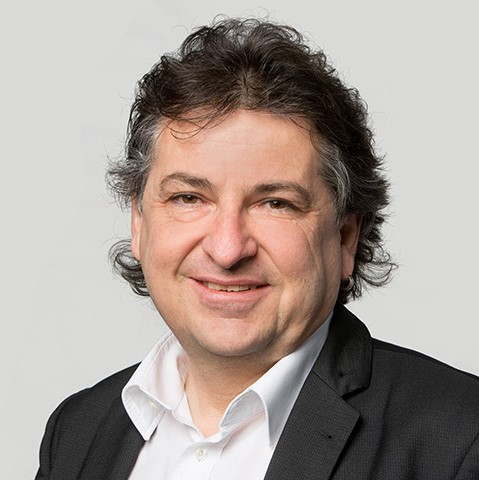
University of Applied Sciences and Arts Northwestern Switzerland FHNW, Switzerland
The continuous alignment of business and IT in a rapidly changing environment is a grand challenge for today’s enterprises. Decision-makers use models to understand and analyze a situation, to compare alternatives, and to find solutions. While humans prefer graphical or textual models, semantic annotation makes the knowledge in models machine-interpretable. The approach has been applied in the CloudSocket project for the selection of cloud services to achieve Business Process as a Service. This presentation also describes a meta-modelling approach, which combines human-interpretable graphical enterprise architecture models with machine-interpretable enterprise ontologies. A metamodel which is represented as a formal ontology determines the semantics of the metamodel. Every time a new modelling element is created during modelling, an instance for the corresponding class is created in the ontology. Thus, models for humans and machines are based on the same internal representation.
Lecture at NEMO2022
Date/Time: Thursday, July 14, 2022 at 14:00 UTC+2/CEST
The quality management discipline is continuously evolving over time and the term “quality 4.0” coins the stage of development, in which “industry 4.0’s digital technologies” (e.g., cyber-physical systems, internet of things, cloud manufacturing, augmented reality, etc.) are applied to quality management. The “quality 4.0” concept is lively discussed in literature and it will play a decisive role in the factory of the future. However, there are still uncertainties regarding the operationalization of the concept in practice and the topic is “too fresh” to have experienced a thorough theoretical foundation yet. So, it is rather unclear whether existing quality management methods and techniques can be transferred to industry 4.0 settings or not. As a result, guidelines for the effective implementation of quality 4.0 principles are missing yet. Furthermore, companies often lack the resources to investigate the design of new quality management methods for industry 4.0. This lecture proposes “tool-supported situational roadmap development for BPI” as an instrument to arrive at enterprise-adapted and easy-to-use approaches for “quality 4.0” that can be applied straight away. In this way, employees are enabled to design BPI approaches to match their particular needs. This lecture presents a first conceptual solution and a prototype implemented via the ADOxx platform.
Lecture at NEMO2022
Date/Time: Monday, July 18, 2022 at 14:00 UTC+2/CEST
Internet‘s evolution into a generic platform and a pervasive environment enables the creation, provision and consumption of digital services. Cloud-based deployment models offer transparent access to services for a worldwide group of users. The models support 24/7 availability, location independence as well as autonomy of resource processing limitations. At the same time, digital services are the basis of new and innovative business models. All of the above is expected to take place in the digital transformation process. Is it really feasible this way?
Lecture at NEMO2022
Date/Time: Monday, July 11, 2022 at 10:00 UTC+2/CEST
The lecture concerns an approach to the application of conceptual modelling known as the Capability Oriented Requirements Engineering (CORE) approach. The conceptual modelling framework applied in CORE employs a set of complimentary and intertwined modelling paradigms based on enterprise capabilities, goals, actors, and information objects. The lecture will define the foundational concepts of CORE as well as the way of working from capturing textual descriptions from stakeholders, progressing to formally defining models of early requirements, based on the CORE meta-model, and in a stepwise refinement define functional and non-functional requirements of desired systems. The theory will be supplemented by examples from a real application of CORE on a Cyber Physical Production System.
Lecture at NEMO2022
Date/Time: Thursday, July 21, 2022 at 09:00 UTC+2/CEST
In the era of global economy and frequent changes, caused, for instance, by digital transformation and innovation, the information systems development faces the need for continuous realignment with the business processes and systems. Continuous development, continuous delivery, and continuous engineering have become common notions in contemporary systems development language. In this context, right requirements still are the key of project success; however the methods for their engineering must adhere to challenges and possibilities of enterprise digitalization levels. One of the opportunities that are provided by enterprise modeling tools is the possibility to utilize enterprise models in requirements engineering. FREEDOM framework is one of the means for structured and purposeful usage of As-Is and To-Be enterprise models for requirements engineering in different project types and enterprises.
Lecture at NEMO2022
Date/Time: Monday, July 18, 2022 at 09:00 UTC+2/CEST
The Cognitive Digital Twin (CDT) concept has been recently proposed which reveals a promising evolution of the current DT concept towards a more intelligent, comprehensive, and full lifecycle representation of complex systems. To explain the CDT vision and facilitate its development, we designed a three-dimensional CDT reference architecture based on the RAMI4.0 architecture. This reference architecture contains the key elements of the CDT vision including full lifecycle phases, system hierarchical level and multi-layer functions. Moreover, we introduce the main enabling technologies for CDT development and implementation directly correlated with the CDT characteristics, including semantic technologies, MBSE, PLM etc. The couplings of these technologies is another challenging task of CDT applications. From cyber-physical system perspective, it is critical to interconnect subsystems across different domains and lifecycle phases using adapters, brokers and other types of middleware mechanisms.
Lecture at NEMO2022
Date/Time: Monday, July 11, 2022 at 15:00 UTC+2/CEST
In general, process algebra can be the most suitable formal method to specify IoT systems due to the equivalent notion of processes as things. However there are some limitations to predict smart IoT systems with the properties of distribution, mobility and real-time. For example, Timed pi-Calculus has capability of specifying time property, but is lack of direct specifying both execution time of action and mobility of process at the same time. And d-Calculus has capability of specifying mobility of process itself, but is lack of specifying various time properties of both action and process, such as, ready time, timeout, execution time, deadline, as well as priority and repetition. In order to overcome the limitations, this lecture presents a process algebra, called, dTp-Calculus, extended from d-Calculus, by providing with capability of specifying probabilistic transitions with the set of time properties, as well as priority and repetition. Further the method is implemented as a tool, called SAVE, on the ADOxx meta-modeling platform. It can be considered one of the most practical and innovative approaches to model probabilistic behavior of smart IoT systems.
Lecture at NEMO2022
Date/Time: Thursday, July 14, 2022 at 11:30 UTC+2/CEST
Nowadays we still identify a plethora of methods and techniques that can be deployed in the development of information systems (ISs). ‘Optimal’ methods are still far from obvious. For decades we have developed a methodology approach and a framework, named IISStudio, for support of the IS development process. IISStudio can be categorized as a Model Driven Software Development and Domain Specific Modeling framework and relies on a specific meta-model named as IISCase Meta-model. It is aimed at improving the IS development process by increasing designers’ efficiency and the overall quality of the systems being developed. In this lecture we present the main idea of our approach, and discuss our experiment that was to implement a selected part of IISCase Meta-model in ADOxx Modeling and Configuration Platform. Some of lessons learned from our experimental work in this research indicate that the ADOxx framework successfully addresses some of the issues present in other meta-modeling frameworks.
Lecture at NEMO2022
Date/Time: Wednesday, July 13, 2022 at 10:00 UTC+2/CEST
Models are the basic human tools for managing complexity and understanding. In the context of digital transformation, modeling plays a central role in ensuring the functionality, security and quality of complex digital ecosystems and enter-prise digital twins. Many modeling paradigms have evolved over time in different disciplines, resulting in a wide variety of modeling languages, methods and tools that have come and gone. This is particularly true for informatics, which is a modeling discipline in it-self: for long it has systematized the field of mod-eling, for example by introducing model hierar-chies, by ontological foundations, by developing universal modeling languages such as UML, or by specifying domain-specific modeling methods (DSSMs) for areas of application where universal approaches fail. A core modeling method in Informatics is that of Conceptual Modeling. In this talk we aim at a bet-ter understanding of the essence of this method. For that purpose, we address the “anatomy” of conceptual models and show how they can be characterized by a signature. We combine this with a transparent explanation of the nature of conceptual models as the link between the dimen-sion of linguistic terms and the encyclopedic or ontological dimension of notions: Figuratively this leads to the triptych of conceptual modeling. Building on this, we show how digital ecosystems can be designed and developed in a rigorous mod-el-centered approach. This is illustrated by the results of projects we have carried out in the areas of assistance systems and the development of mechatronic systems.
Lecture at NEMO2022
Date/Time: Thursday, July 14, 2022 at 09:00 UTC+2/CEST
Hilti is providing products, system solutions and software-based services that contribute to make work on construction sites simpler, faster and safer. While Hilti is proud of its leading construction tools and consumables, it has started to engage itself in building digital products and solutions for its customers. In our presentation at NEMO Summer School, we describe how modelling approaches help us in building software solutions that satisfy the needs of our customers. Relevant questions herein are: (1) How do we reduce the variations and hence complexity of provided software features so that we can deliver them fast and in a reliable manner without compromising customer needs? (2) How can we consider future scaling and performance needs in our software architecture? (3) How can we achieve an architecture model that allows for identifying potential issues (or improvement needs) before they impair our software solutions?
We work on trying to answer these and other questions by (also) applying modelling approaches in a pin-pointed and efficient way. Additionally, we have started to experiment in our OMiLAB to evaluate future use cases for our software offerings.
Lecture at NEMO2022
Date/Time: Thursday, July 21, 2022 at 15:00 UTC+2/CEST
Business processes in the age of the internet are typically not restricted to single organizations but cross organizational borders to customers, suppliers and other organizations. The design of business processes for these business communities is a complex collaborative task, which requires special methodological support. This course introduces Horus, which includes a set of modeling methods and languages to support the whole life cycle of business processes within business communities. Horus is based on high-level Petri Nets for procedure modeling and provides additional modeling support for objects, resources, organizational structures, business goals and business rules. Simulation based concepts are provided to evaluate models. Besides describing the basic concepts of Horus, the course also gives an overview about ongoing research work.
Lecture at NEMO2022
Date/Time: Wednesday, July 20, 2022 at 10:00 UTC+2/CEST
For companies that achieved standardized enterprise processes & data, business modularity can be achieved with the vision and execution of an architectural principle distinguishing solid core and flexible boundary. In Hilti, our solid core included systems enabling business value creation through a globally available standard business process. On the other hand, allocating systems into the flexible boundary enabled agility to meet business needs on time by building on the highly standardized solid core. However, with time and added complexity, this approach needs to be adapted and upgraded to its next generation. The attendees of this lecture will learn about the most influential factors triggering this upgrade and what the next generation of “solid core - flexible boundary” entails.
Lecture at NEMO2022
Date/Time: Tuesday, July 12, 2022 at 16:30 UTC+2/CEST
Despite their recent introduction and consolidation in the industrial practice, Product Service System business models are subjected to a further revision in order to fully exploit the opportunities and challenges provided by the Industry 4.0 technological paradigm. Companies need to identify and define new business models integrating PSS with digital technologies and, as a result, revise their decision-making processes. The design and development of a Product–Service System (PSS) raises new issues since the service component introduces further requirements than traditional product engineering. Compared to traditional and smart products, services are generally under-designed and inefficiently developed. Approaches such as New Service Development, Service Design and Service Engineering have emerged during the last decades to support the design and development of service either as a system itself or as a constituting element of a PSS. In particular, Service Engineering investigates service design and development with a systematic perspective and with a seamless integration of product and service contents. Purpose of the lecture is to provide a holistic conceptualisation and an up-to-date analysis of the current state of the art on the evolution of the concept of Product Service system and Service Engineering models with a specific focus on their adoption in the PSS context. A critical analysis is also performed with the aim to define a research agenda and the most prominent key actions that could give directions for future research.
Lecture at NEMO2022
Date/Time: Friday, July 15, 2022 at 16:30 UTC+2/CEST
The modelling of knowledge, action and time is a topic of current research within the broader domain of knowledge representation and reasoning. The course will focus on declarative approaches for modelling and reasoning with change, paying particular attention to the integration of knowledge and action. As time is inherent in any type of activity and process, the course will also deal with the representation of temporal properties that characterize the occurrence of actions and the knowledge they generate. Practical aspects of reasoning about knowledge, action and time will be discussed in the context of solving constraint satisfaction problems for business process optimization. The ECAVI Event Calculus modelling tool, developed on top of the ADOxx metamodelling platform, will also be presented. ECAVI assists knowledge engineers in the process of axiomatizing causal domains.
Lecture at NEMO2022
Date/Time: Wednesday, July 20, 2022 at 14:00 UTC+2/CEST
Digital transformation asks for digital solutions conceived taking into account the peculiarities of each deployment context. Indeed a “one fits all” approach to the definition of a solution does not lead to satisfactory results. On the other hand, in order to cope with timing constraints that ask for rapid development of digital solutions, it becomes extremely useful to enable the reuse of knowledge acquired in the development of a single solution, and to avoid redeveloping each solution from scratch. IoT based solutions clearly are one of the main pillars enabling digital transformation. In such a context the development is made complex by the many variability dimensions influencing the definition of a possible solution. Variability has to do with the possible adoption of different devices, different processes, different platforms and in different deployment contexts where the specific IoT based application has to be delivered. In the lesson the “X-IoT” (Cross Iot) methods will be introduced. X-IoT proposes a novel model driven approach that, abstracting from technological details, permits to specify cross cutting concerns for an IoT application and, successively, thanks to successive refinement steps, to derive a working application for the given context and specific requirements. The lesson will illustrate the proposed approach and the lesson learned in its definition.
Lecture at NEMO2022
Date/Time: Tuesday, July 12, 2022 at 10:00 UTC+2/CEST
In this lecture, we will look at enterprises (companies, organizations, agencies, factories, etc.) from the perspective of them being essentially model-driven systems. We will start with a refelection on what a model is, where it is important to realize that the notion of model involves more than “boxes and lines” diagrams. From this broader perspective, we then briefly explore the natural role that models play in the (continous) development, operation, and regulation of enterprises. new technologies, such as AI, low-code, rule engines, IoT, Digital Twins, etc., provide additional drivers and enablers for the usage of models (in the broader sense) in enterprises. At the same time, some of these technologies (e.g. low-code, rule engines, big data, and explainable AI) actually put even more stress on the role of models. Based on this exploration, we then return to the more fundamental question of the value of models. When creating and using models in an enterprise context it becomes important to consider its costs and benefits. The creation, administration, and use, of such domain models requires an investment in terms of resources (time, money, cognitive effort, etc.). We contend that such investments should be met by a (potential) return. In other words, the Return on Modelling Effort (RoME).
Lecture at NEMO2022
Date/Time: Tuesday, July 12, 2022 at 15:00 UTC+2/CEST
Although data as a new sellable good has been under discussion for years, selling and monetizing data assets has not been given proper thought in IS modeling and development This aspect is of relevance given recent concerns about data privacy and security and the simultaneous explosion in the use of data for marketing and service-development purposes. We show how this aspect can be considered in IS development through constraints (organization type, business type, data characteristics, privacy, and security) that companies should address to move from the internal use of data and supporting existing customers to generating new business through selling data. These concerns need to be linked to data production processes within the organization and analyzed against regulations (e.g. GDPR and new European DMA and DSA acts). We also demonstrate how business models can be used to analyze what parts of the data assets can be monetized and what kind of relationships and partnerships have to be formed.
Lecture at NEMO2022
Date/Time: Wednesday, July 20, 2022 at 09:00 UTC+2/CEST
We examine the current state and problems of modelling for software and for cyberphysical systems and discuss a number of approaches to tackle those. In particular, we discuss how to make use of models in large development projects, where a set of heterogeneous models of different languages needs is developed and needs to fit together, e.g. describing high-level structures of the organisation, business processes, data structures, physical components, their operation and so on. A model based development process (both with UML/SysML as well as a domain specific modelling language (DSML)) heavily relies on modelling core parts individually and composing those through generators to early and repeatedly cut code and tests from these models. We discuss in detail compositionality on models and heterogeneous modelling languages and how it supports agile evolution of such infrastructures.
Lecture at NEMO2022
Date/Time: Thursday, July 14, 2022 at 10:00 UTC+2/CEST
In many industrial sectors and service domains, enterprises change or extend their business models based on digital technologies. Examples are smart connected products allowing for monitoring and control of physical devices, services with customer journeys digitalized end-to-end, or platforms offering data-driven services as complement to product-service bundles. The resulting digital transformation of enterprises causes substantial changes in the operational processes and organizational structures, and in the way of working with partners, suppliers and customers. Enterprise modeling offers different techniques to support digital transformation. The lecture will examine the use of modeling in digital transformation projects from a practice perspective based on selected real-world cases.
Lecture at NEMO2022
Date/Time: Tuesday, July 19, 2022 at 10:00 UTC+2/CEST
Companies are often involved in Enterprise Modeling (EM) activities that address various business problems usually relayed to business and IT development or improvement of the quality of business operations. This can be done from a number of perspectives, e.g., strategy (goals, challenges, opportunities), business operations (processes, actors, resources), information (concepts, products), information technology (requirements, components), etc. However, to develop efficient solutions and to ensure their fit, all of these perspectives need to be analyzed in an integrated way, which is a core principle of EM. In practice, EM activities often involve groups of people, i.e. the models are created in a participatory way. This presentation will discus participatory EM and the 4EM method, including its meta-model and tooling. We will also discuss what modeling challenges can be addressed by this kind of modeling.
Lecture at NEMO2022
Date/Time: Monday, July 11, 2022 at 14:00 UTC+2/CEST
Artificial intelligence is seen as the key technology for solving the grand societal challenges (e.g.: Sustainable Development Goals) in the future. Thus, it is no big surprise that the industry applications - including privacy & safety relevant domains (e.g. health, mobility, …) – increase rapidly. The accumulation of incidents (e.g.: profiling, machine learning bias, …) in the recent past and problems to understand complex artificial intelligences led the EU Commission to develop a proposal for the regulation of AI and high-risk AI. This talk highlights key aspects of this proposal and outlines current cyber security challenges and threats, which should be considered when developing, acquiring or running high risk artificial intelligence applications. Furthermore, current initiatives and approaches addressing this topic are presented.
Lecture at NEMO2022
Date/Time: Tuesday, July 19, 2022 at 14:00 UTC+2/CEST
Modelling business processes is essential for business effectiveness and efficiency. But not all business processes can easily be modelled as simple arrangements of flows and activities. Certainly knowledge-intensive processes incorporate lots of decisions and decision knowledge, that should not be hidden in process flows or activities, because hardcoding (decision) rules in processes leads to complex and inflexible process models. In analogy with the Business Process Modelling & Notation Standard (BPMN), a Decision Model & Notation standard (DMN) was developed, that allows to model the decisions separately, thereby simplifying the process model. Decision models describe business decisions, with their interrelationships and requirements, together with the detailed decision logic used to make the decision.
This session is about the basics of decision modelling, and mainly about how decision models and process models should be combined (and separated) into an integrated model of processes and decisions.
Lecture at NEMO2022
Date/Time: Monday, July 18, 2022 at 10:00 UTC+2/CEST
When modeling real world activities involving social, economic and technical aspects conceptual modeling is a necessary prerequisite to set the stage and define the system boundaries, which becomes difficult - especially when not all relevant actors, shareholders and stakeholder as well as their intrinsic and extrinsic motivations are known. One of the methodological challenges is to provide a unified framework to collect as many relevant perspectives and pieces of information and create a most comprehensive but yet insightful and understandable representation. Another challenge is to transform these findings into standardized and re-usable information which can serve as input for other modeling tools downstream in the tool chain. We will present both a methodology based on value networks and a modeling tool (EcoViz), which is intended to address these issues and can also be used right before the typical conceptual modeling starts – in a “pre- conceptual phase” and show some practical applications.
Lecture at NEMO2022
Date/Time: Wednesday, July 13, 2022 at 15:00 UTC+2/CEST
The lecture describes the path from the task-oriented analysis of ship traffic management in the Port of Hamburg to the design and realisation of a touch table application “Sounding Table”. The focus is on supporting the arrival and departure of large ships in the Port of Hamburg. This example shows how we narrowed the classical gap between the domain-oriented analysis of the application area and the design of the user model. We will then outline how this design process has a direct influence on the architecture of the software. architecture. Key roles are played here by our metaphor-oriented Tool & Material approach and user participation with Domain Story Telling.
Lecture at NEMO2022
Date/Time: Monday, July 18, 2022 at 15:00 UTC+2/CEST

